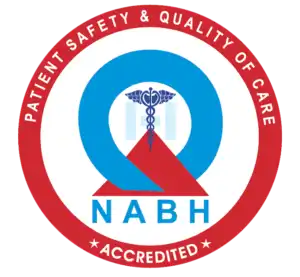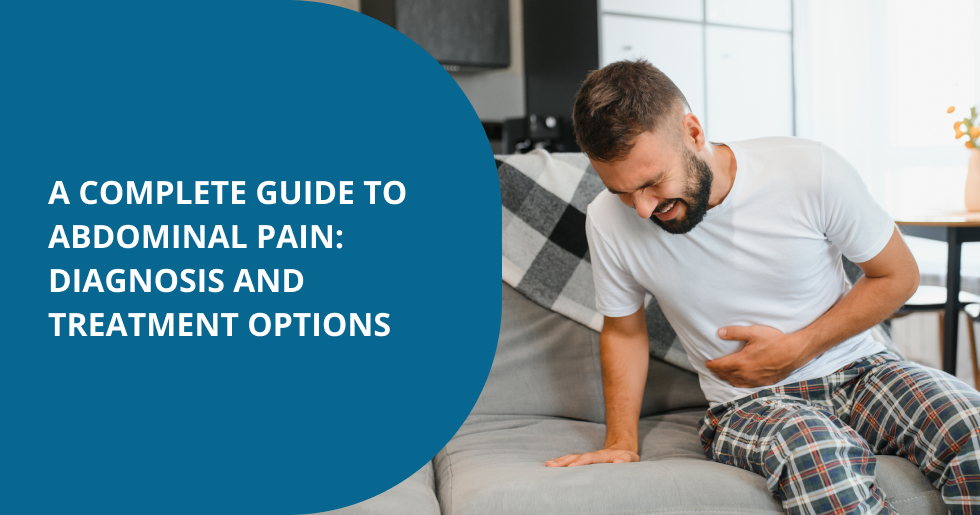Almost everyone experiences abdominal discomfort at some time.
While mild stomach aches are usually harmless, persistent or intense abdominal pain can signal an underlying issue that needs medical evaluation.
Knowing the different types of abdominal pain, their causes, and the treatment options helps patients determine when to handle symptoms at home and when to consult a healthcare professional.
At Epione in Bangalore, our specialists prioritise accurate diagnosis and offer personalised, non-surgical treatments for abdominal pain, ensuring comfort and long-term well-being.
Understanding Abdominal Pain
Abdominal pain is commonly called a stomach ache or abdominal cramps. It is a common condition that disrupts daily life for people of all age groups, ranging from a dull ache to a sharp pain and discomfort.
While some times mild and temporary, abdominal pain can also signal more serious underlying medical conditions.
Types of Abdominal Pain
Here are four types of Abdominal Pain
- Acute: Pain that starts suddenly and lasts for a few hours or days.
- Chronic: Pain that lasts for weeks, months, or even years. This may be intermittent or constant and is often linked to underlying chronic diseases or nerve issues.
- Progressive: Pain that steadily worsens over time and is usually a sign of a serious condition.
- Localised Pain: Pain localised to a single area is often a sign of an issue with an organ, such as the appendix, gallbladder, or stomach.
- Cramping Pain: Pain that comes and goes, often associated with gas, diarrhoea, constipation, or menstruation.
- Colicky Pain: Pain that occurs in waves, frequently begins and stops suddenly, and can be intense.
Common Causes of Abdominal Pain
Most causes of Abdominal Pain are temporary and not serious. But the key is to know when you need to get help from medical experts.
Here are some of the common Abdominal Pain Causes –
- Digestive Problems: Many discomfort stems from problems in the digestive system, like indigestion, constipation, or food allergies.
- Inflammation: Painful irritation or infection in your organs can be caused by inflammation from the stomach flu, a peptic ulcer, Urinary Tract Infections (UTIs), or bacterial infections.
- Gynaecological Causes (Women): For women, pain in the abdomen might be due to menstrual cramps or ovulation pain.
Red Flag Symptoms to Watch
While many instances of abdominal discomfort are mild, certain Abdominal pain symptoms signal a need for immediate medical attention:
- Sudden, severe, or “worst ever” pain.
- Pain accompanied by bloody stools or vomiting blood.
- Severe tenderness when the abdomen is touched.
- Abdominal swelling or rigidity.
- Pain accompanied by a high fever.
- Unexplained weightloss
How is abdominal pain diagnosed?
The health expert starts the abdominal pain diagnosis with a detailed medical history and physical examination.
- Physical Examination – One of the best ways to diagnose is a physical examination of the abdomen performed by a health expert. It involves listening to bowel sounds, gently pressing on the abdomen (palpation), and checking for tenderness, swelling, or masses.
- Imaging and Laboratory Tests – Depending on your symptoms and history, your doctor may order several tests, including blood tests, urine tests, X-rays, Ultrasound, CT Scan, MRI, and endoscopy to get more detailed views and diagnose different conditions, if any.
Non-Surgical Treatment Approaches
When experiencing abdominal pain, seeking a proper diagnosis is essential to determine the right treatment. Here are some of the non-surgical treatment options that can help to relieve and improve overall well-being.
- Dietary Changes: Avoid food that triggers, like those that are spicy, fatty, or highly processed, and also have smaller, frequent meals.
- Lifestyle Adjustments: Get plenty of rest, stay well-hydrated, and apply a warm compress to your abdomen.
- Stress Management: Techniques like meditation, yoga, or deep breathing can reduce stress, which is often linked to abdominal pain.
- Medications: Medications like antibiotics, antispasmodics, pain relievers, or specific medications may be used to relieve symptoms or treat the root cause of the conditions.
PRP Therapy in Post-Surgical or Muscle Pain
Sometimes abdominal pain isn’t from the organs but from the abdominal wall muscles, often after surgery, injury, or repetitive strain. PRP (Platelet-Rich Plasma) therapy offers a powerful non-surgical treatment for muscle pain.
It uses a concentration of the patient’s own growth factors to promote tissue repair and reduce chronic localised inflammation, making it a regenerative option for targeted strain pain management.
The natural and non-surgical approach accelerates recovery and provides a long-lasting relief – especially valuable for patients recovering from musculoskeletal strain after abdominal surgery.
When Surgery is Needed?
Most abdominal pain is harmless and resolves without the need for surgery. However, surgery becomes crucial when the pain is caused by a condition requiring immediate physical intervention. That includes conditions such as gallstones, kidney stones, duct, or appendicitis. At Epione Bangalore, expert specialists ensure accurate diagnosis and the right treatment approach for effective relief.
FAQs
-
Can abdominal pain be treated without surgery?
Yes, most abdominal pain that goes away without surgery is treated with non-surgical therapies, lifestyle changes, and medications.
-
How does PRP work for abdominal muscle injuries?
PRP is injected into the affected area of a chronic muscle tear or strain in the abdominal wall. The growth factors stimulate the body’s natural healing process, repairing the damaged muscle fibres and reducing localised inflammation.
-
What tests are used to diagnose abdominal pain?
Common tests include X-rays, Ultrasound, blood test, urine test, CT scans, and endoscopy.
-
When should I worry about my abdominal pain?
You should seek medical care if you experience severe pain, persistent fever, or blood in your stools or vomiting.
-
Is abdominal pain ever a medical emergency?
Yes, conditions such as persistent pain lasting more than 24 to 48 hours, bowel obstruction, ruptured ulcers, or intestinal blockages require medical attention.






